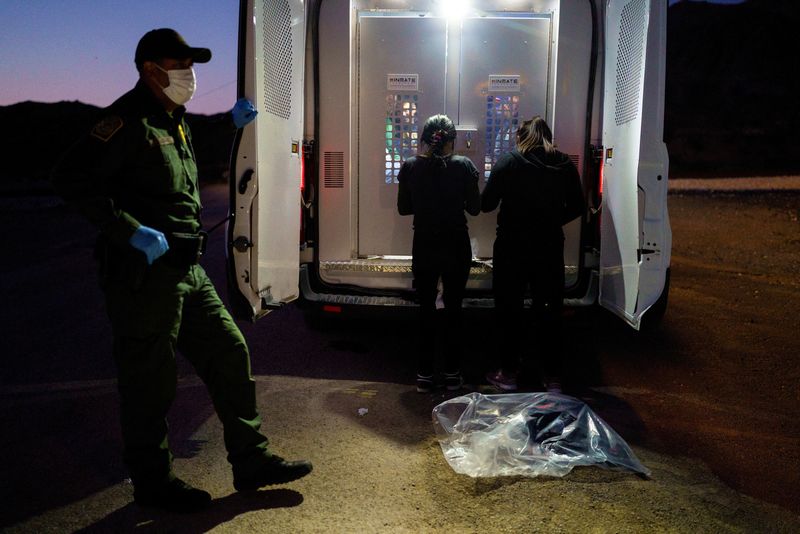By Lizbeth Diaz
MEXICO CITY (Reuters) - The number of Ecuadorians braving the trek north to Mexico in hopes of reaching the United States jumped exponentially last year amid a wave of violence and shrinking job opportunities at home, experts say.
"We've never seen violence like this before," said Monica, a 30-year-old Ecuadorian in Mexico who fled after criminals threatened to kill her when she could not make extortion payments to continue selling food.
Murder rates in Ecuador leapt in 2022 to 25.32 per 100,000 people, up from 14.06 per 100,000 people the year before, according to police data.
"We want to go to the United States, we know that Mexico is not safe either," Monica added, declining to give her last name.
Monica, like many other Ecuadorians, made at least part of the arduous journey on foot. She arrived in Mexico last week with her husband after traversing the dangerous Darien Gap connecting Colombia and Panama.
Migrants are increasingly staying in Mexico after being unable to reach the United States, while others are deported back to Mexico after crossing the border.
Last year, 22,156 Ecuadorians entered Mexico without proper documentation, according to immigration data, up from 1,384 in 2021.
Mexico extended a visa requirement last year for Ecuadorians, with the aim of deterring migrants from passing through the country to the United States.
But experts interviewed by Reuters say the visa requirement contributed to the jump in undocumented travel to Mexico, with rising violence also prompting people to leave.
Over the weekend, Ecuadorians turned out for local elections, though the process was marred by the murder of three candidates - the most recent on Saturday - and more than a dozen threats reported.
Authorities had accused nearly 30 candidates of possible ties to drug trafficking and illegal mining.

Meanwhile, human rights advocates are pushing for more nations whose residents are seeking to migrate to be included in a U.S. humanitarian program via a mobile application called CBP One.
"The migration issue over the last year - particularly for young people - is alarming," said Flor Haro, president of Ecuador's Family Without Borders Foundation.